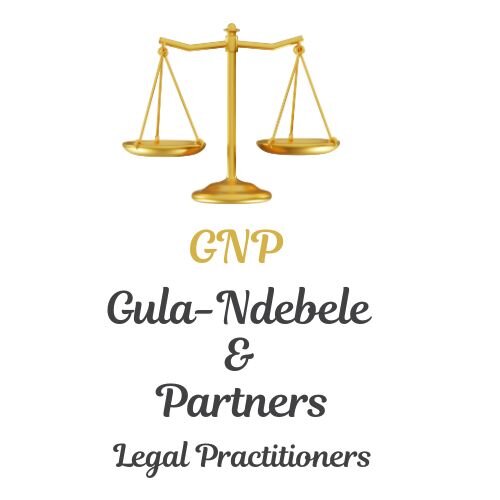Best Probate Lawyers in Zimbabwe
Share your needs with us, get contacted by law firms.
Free. Takes 2 min.
Or refine your search by selecting a city:
List of the best lawyers in Zimbabwe
About Probate Law in Zimbabwe
Probate law in Zimbabwe governs the legal process that takes place after someone passes away, to ensure that their estate is distributed according to their will or, if no will exists, in accordance with the laws of intestacy. The process involves verifying the deceased's will, appraising their assets, settling debts and taxes, and distributing the remaining assets to the rightful beneficiaries. Probate in Zimbabwe is managed through the High Court, and it's essential for ensuring a fair and orderly distribution of the deceased's estate.
Why You May Need a Lawyer
Engaging a lawyer in probate matters can be crucial in several common scenarios:
- If the deceased has left a complex estate or if their estate includes assets in multiple jurisdictions.
- If there are disputes among beneficiaries, such as contested wills or disagreements over the distribution of assets.
- If the estate is subject to significant debts or tax obligations that require expert handling.
- If you are the executor of the will and need guidance on your responsibilities or face legal challenges.
- If there are claims by individuals not named in the will who believe they are entitled to a share of the estate.
Local Laws Overview
The key aspects of Zimbabwean probate law include:
- Administration of Estates Act: Governs the administration of deceased estates, including intestate succession and the duties of executors or administrators.
- Deeds Registries Act: Relates to the registration of immovable property, ensuring a transparent system for the transfer of property titles during the probate process.
- Wills Act: Outlines the requirements and procedures for drafting a valid will in Zimbabwe, highlighting the importance of proper execution to avoid disputes.
- Maintenance of Peace Act: Provides regulations for resolving disputes peacefully, applicable during contentious probate proceedings.
Frequently Asked Questions
What is probate?
Probate is the legal process through which a deceased person's will is validated, their assets are appraised, debts and taxes are settled, and any remaining assets are distributed to the beneficiaries.
Do all estates have to go through probate in Zimbabwe?
Not all estates require probate. If an estate is small and uncontested, it may pass without the need for a formal probate process.
How long does the probate process take?
The duration varies depending on the complexity of the estate and whether any disputes arise, but it generally takes several months to a year.
Can a will be contested in Zimbabwe?
Yes, wills can be contested on grounds such as lack of capacity, undue influence, or improper execution.
What happens if there is no will?
If there is no will, the estate is distributed according to the laws of intestacy, which prioritize the deceased's closest relatives.
What are an executor's responsibilities?
An executor manages the deceased's estate, ensuring that debts are paid and remaining assets are distributed according to the will or court orders.
Are there taxes on inherited estates?
Estate taxes may apply, and it's advisable to consult with a lawyer to understand your potential tax obligations in Zimbabwe.
How do I choose a probate lawyer?
Look for a lawyer with experienced in estates and probate law in Zimbabwe, and consider their track record and client testimonials.
What costs are involved in probate?
Costs may include court fees, legal fees, valuation fees, and potential taxes, all of which a lawyer can help quantify.
Can an executor be held liable for mistakes?
Yes, executors can be held liable for any mismanagement of the estate, which is why legal guidance is often recommended.
Additional Resources
Consider reaching out to the following for more information or assistance:
- Zimbabwe Lawyers for Human Rights: Provides guidance on legal rights and might assist with probate issues.
- High Court of Zimbabwe: Official entity that handles probate proceedings, offering insights and procedural information.
- Master of the High Court: Oversees the administration of estates and can be a valuable resource for procedural queries.
- Institute of Chartered Secretaries and Administrators in Zimbabwe (ICSAZ): Offers professional insights into estate and probate administration.
Next Steps
If you require legal assistance in probate matters, consider taking the following steps:
- Consult with a qualified lawyer specializing in probate to discuss your specific situation and needs.
- Gather relevant documents, including identification, the deceased's will (if available), and any available financial records of the estate.
- Determine your role in the proceedings, such as executor, beneficiary, or a concerned party disputing terms, and prepare documentation to support your position.
- Work with your lawyer to outline a clear plan of action, covering the probate application, possible negotiations or disputes, and asset distribution.
- Follow legal advice closely to ensure compliance with all procedural requirements and deadlines.
Lawzana helps you find the best lawyers and law firms in Zimbabwe through a curated and pre-screened list of qualified legal professionals. Our platform offers rankings and detailed profiles of attorneys and law firms, allowing you to compare based on practice areas, including Probate, experience, and client feedback.
Each profile includes a description of the firm's areas of practice, client reviews, team members and partners, year of establishment, spoken languages, office locations, contact information, social media presence, and any published articles or resources. Most firms on our platform speak English and are experienced in both local and international legal matters.
Get a quote from top-rated law firms in Zimbabwe — quickly, securely, and without unnecessary hassle.
Disclaimer:
The information provided on this page is for general informational purposes only and does not constitute legal advice. While we strive to ensure the accuracy and relevance of the content, legal information may change over time, and interpretations of the law can vary. You should always consult with a qualified legal professional for advice specific to your situation.
We disclaim all liability for actions taken or not taken based on the content of this page. If you believe any information is incorrect or outdated, please contact us, and we will review and update it where appropriate.
Browse probate law firms by city in Zimbabwe
Refine your search by selecting a city.















